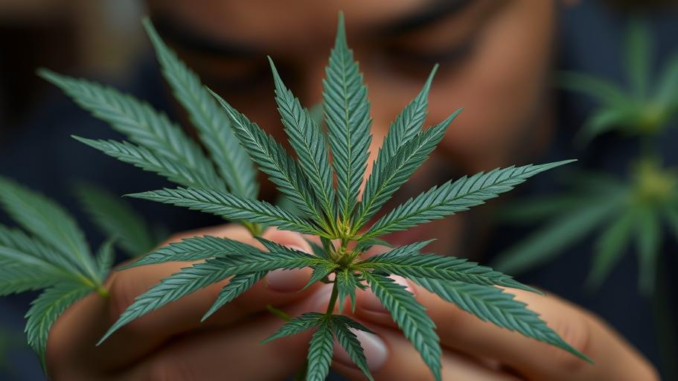
Summary
Prenatal marijuana exposure may increase the risk of opioid addiction later in life. A study on rats showed that THC exposure in the womb alters the brain’s reward system, making offspring more susceptible to opioid addiction. This highlights the importance of understanding the long-term impacts of prenatal substance exposure.
** Main Story**
Okay, so, new research just dropped from the University of Maryland School of Medicine, and it’s a bit of a wake-up call. It’s about prenatal marijuana exposure, and, well, it might be upping the risk of opioid addiction later on. I know, it’s a heavy topic.
Published in Science Advances, the study basically says that tetrahydrocannabinol (THC), the stuff in marijuana that gets you high, can mess with a baby’s brain development in the womb. Specifically, it seems to be rewiring the reward system and that can then make a person more likely to become dependent on opioids down the line. Does that mean if a mother consumes THC during pregnancy her child will definitely have opioid addiction issues? Absolutely not, but its another data point for understanding the effects that drugs and alcohol have on prenatal health.
Rewiring the Reward System
The study itself? Done on rats. But get this: even moderate THC exposure during pregnancy for these rats – think equivalent to a joint or two a day for us humans – caused pretty significant changes in their babies’ brains. Those little rat brains? Hyperactive dopamine neurons everywhere. Now, dopamine is all about pleasure and reward, so, essentially, they were on high alert. And guess what? These THC-exposed rats were way more motivated to self-administer opioids than the rats who hadn’t been exposed. Really makes you think about the long-term impact, doesn’t it?
Dopamine’s Role
The researchers didn’t just stop there. They also saw that prenatal THC exposure made these dopamine neurons extra sensitive to cues associated with rewards. So, imagine someone exposed to THC in the womb; they might have an even stronger link between, say, an environment where drug use is happening and the ‘reward’ they get from opioids. I remember a friend from college telling me about how certain places always triggered cravings for him. Anyway, the study was pretty detailed, using tiny sensors in the rat brains to measure dopamine release and neuron activity. It turns out dopamine release was heightened and these neurons lit up when presented with opioid-related cues.
Real-World Implications
This isn’t just academic stuff, you know? It’s real life. The study suggests this potential link between prenatal marijuana exposure and opioid addiction risk. And, with more places legalizing marijuana, it’s crucial that we, as professionals, educate expectant mothers about the potential risks. We can’t just ignore this, because ignoring it won’t make the problem go away. Is it perfect data? Nope, more research is always required, but this a great foundational article on the topic.
That said, it’s not just about addiction. We need comprehensive support systems for people who might be more predisposed to substance use disorders because of their prenatal environment. Think accessible treatment programs, mental health services, educational initiatives. It’s about looking at the big picture – prenatal exposure, brain development, addiction – and taking a more compassionate, and effective approach to recovery. It’s an incredibly complex issue, and it will likely take some time to fully unravel the long-term implications of prenatal substance exposure.


Be the first to comment